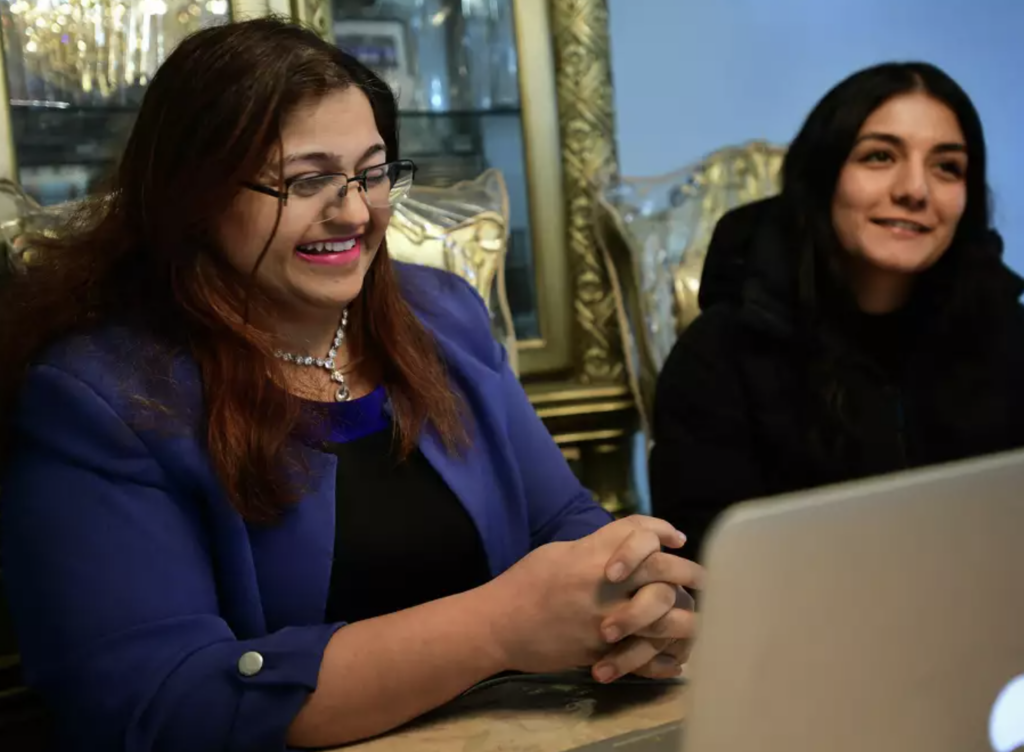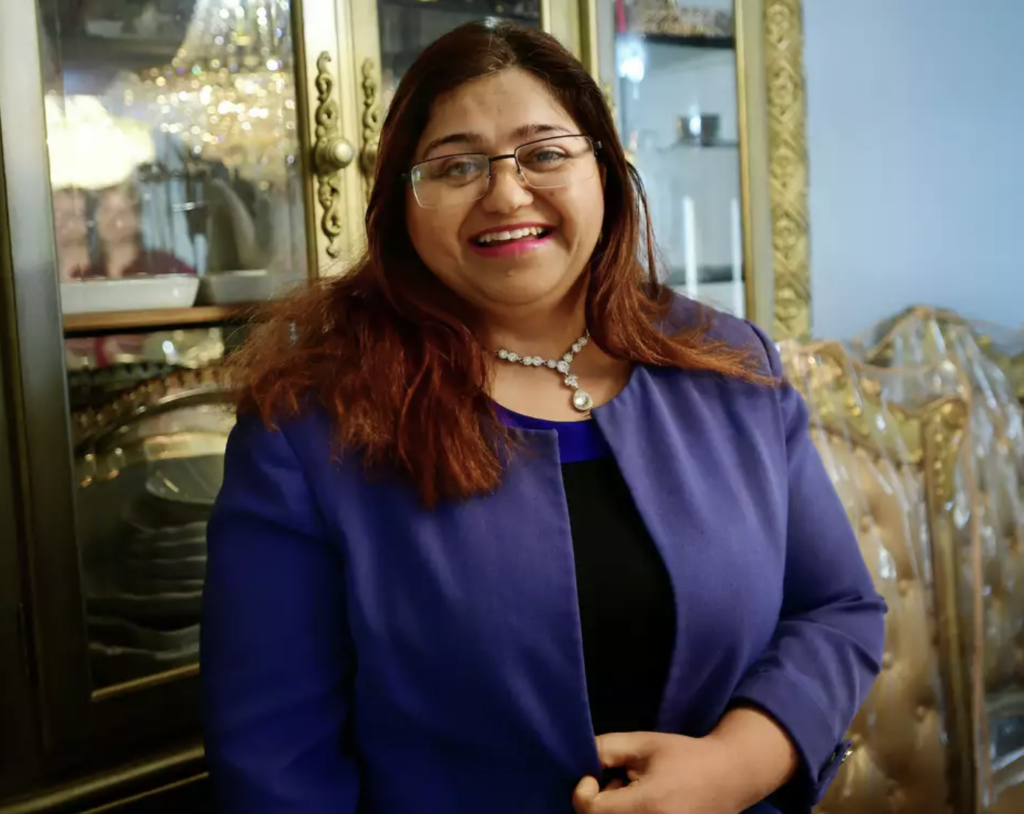
NORTH HAVEN — As a young Afghan girl, Fereshteh Ganjavi was thirsty for education. She loved to learn, but she was not allowed to go to school.
Her father, seeing her passion and the need for education, made a fake ID so she could attend classes in the country where they were refugees. Then they went further, opening a secret basement school. At 12, Ganjavi would go to classes, then teach others what she had learned.
That experience set her on a path to educate not only herself, but others. After arriving in the U.S. at age 25 with her mother as refugees in 2011, Ganjavi got degrees from Gateway Community College and Southern Connecticut State University. She became an adjunct professor at University of New Haven.
Then, she taught herself how to start a nonprofit.
“I feel education was a very good key for me, opened a lighting door, that I can give light to other people,” Ganjavi said.

The light is visible in the name of the nonprofit she founded, Elena’s Light, an organization serving primarily immigrant and refugee women that arranges one-on-one English tutoring, prepares women for drivers’ license tests and connects them to health and legal resources, all at no cost.
When refugees arrive in the U.S., they are received by local resettlement agencies that the government funds to provide basic necessities, including housing, food and clothing for their first 90 days in the country. Elena’s Light is not a resettlement agency, but rather aims to support refugees and immigrants after their initial arrival.
The organization partners with several universities across the country for English tutors, and with Yale to break down barriers to healthcare. Ganjavi contributed last year to research about Afghan refugee wellness that was published by Oxford University Press.
Ganjavi said immigrants should be leaders.
“If they get an education, they have a key to open different doors,” Ganjavi said.
The name also comes from her 6-year-old daughter Elena, the oldest of three girls.
Elena’s Light has served 1,300 clients since Ganjavi began work in 2017, and the organization became a nonprofit in 2019. Ganjavi, the four paid staff and the slew of volunteers operate with funding from grants and donations.
One client is a woman who used to live under the Taliban regime and whose dream is to become a medical interpreter, Ganjavi said.
She said that woman shared how she went to Stop & Shop and cried all the way home, because thanks to English classes she knew how to communicate with the cashier.
Ganjavi runs the nonprofit from her North Haven home. She works from the dining table adjacent to the kitchen, which she likes for people to see in the background of her Zoom meetings. Sometimes women are thought to belong in the kitchen, she said, but from the kitchen, women can do many things.
Even one week after Ganjavi gave birth, she went back to working.
Ganjavi’s working “from the time she wakes up until she goes to bed,” volunteer Sadi Ghimire, said.
Ghimire, who wants to pursue immigration law and like many other volunteers is an immigrant, first began working with Elena’s Light in 2021 and has seen it grow.
“It creates a community of people who are really passionate from their own personal experiences,” Ghimire said. “It’s really inspiring to be in that community and see people be so passionate and want to help change the experiences of others based on those experiences resonating with their own.”
Ganjavi never planned to start a nonprofit. She said her goal was to help, not make an organization. But she wanted to provide light to refugees and immigrants. Ganjavi herself was a client of New Haven’s refugee resettlement agency IRIS, and her first job in the U.S. was as a healthcare coordinator with the nonprofit.
Ganjavi wants to continue educating herself and others. She dreams of getting a doctorate at Yale University. And she hopes to open a physical space to meet refugees’ social needs, where they can share support resources.
In the meantime she continues to celebrate refugees and showcase the work they do, to combat the narrative that they just get free housing and food stamps.
In April, the Lighting the Future Award Ceremony will honor immigrants and refugees who are committed to accomplishment, advocacy and community with a dinner and lecture. The event is inspired by Ganjavi’s journey as a refugee.
Read the original article via CT Insider here.

